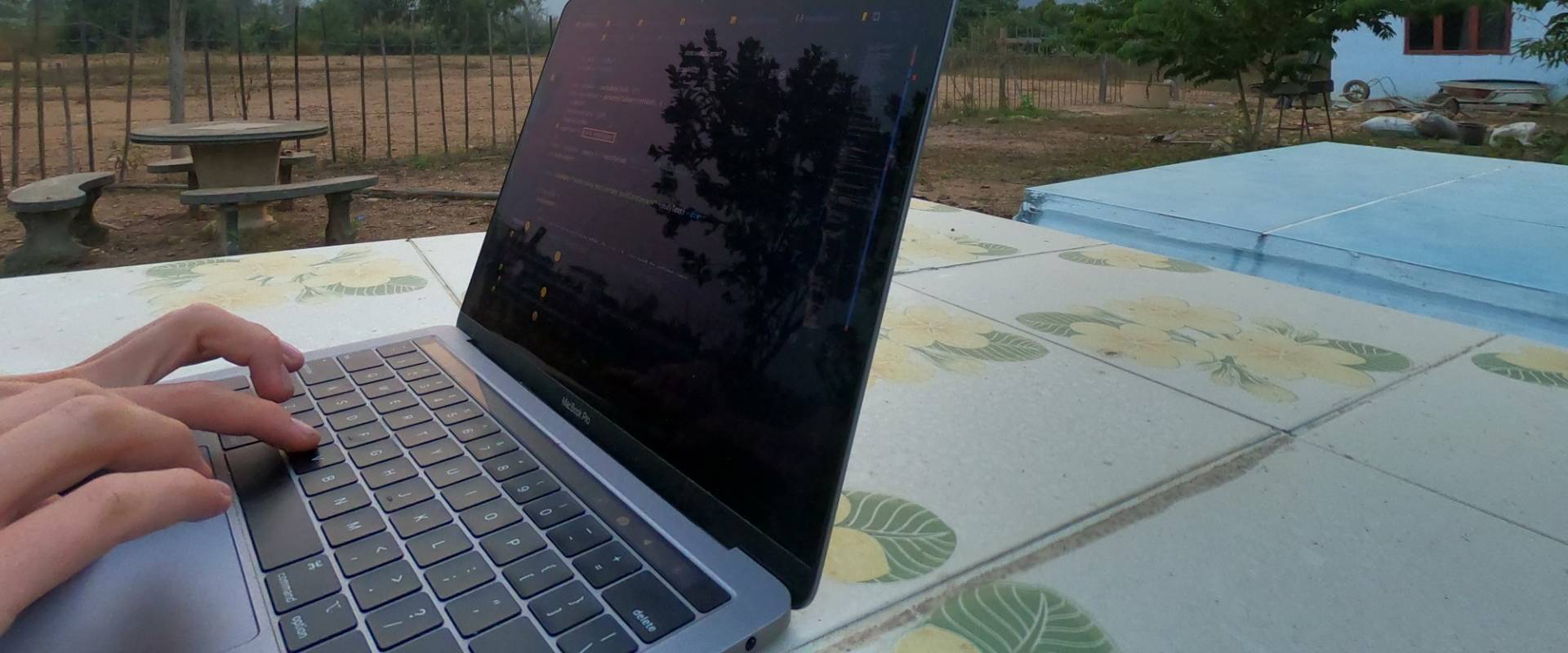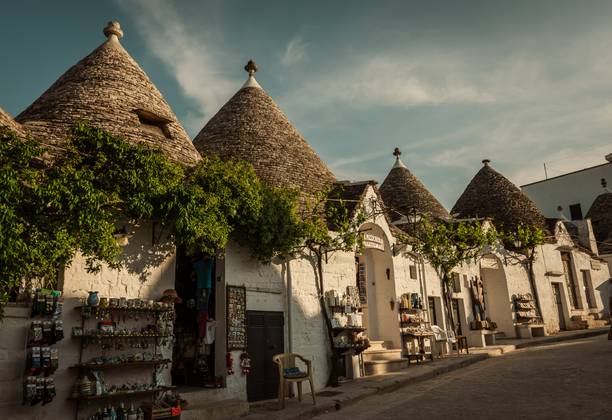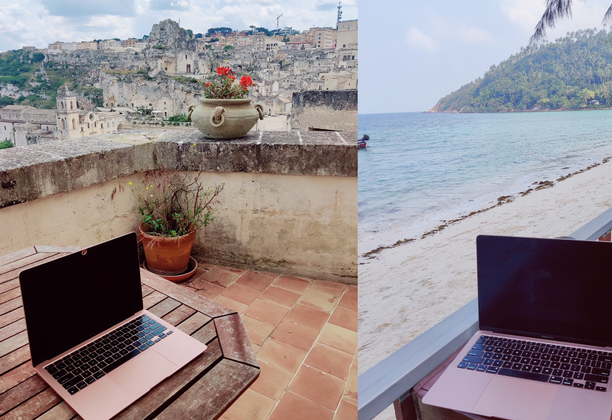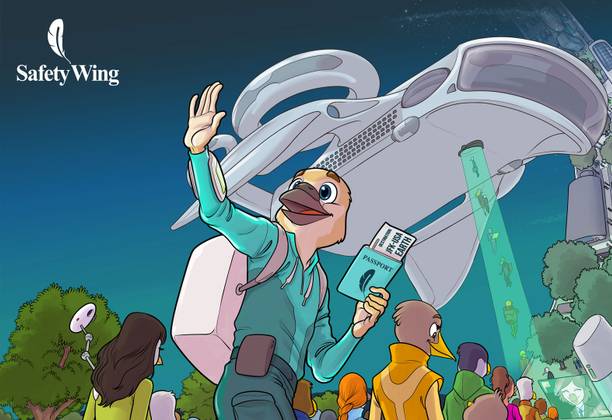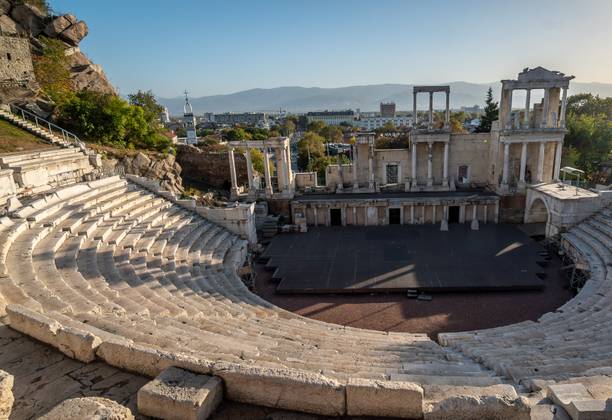How to become a digital nomad an quit your 9 to 5 job?
Most digital nomads I met are from rich countries and this is still an uncommon path for us, Filipinos. But I'm here to tell you that it is doable for us.
One of the most difficult process in becoming a digital nomad is leaving your comfortable life.
So I'm here to share how I was able to quit my corporate job and give you tips based on my experience. Most tips apply to any nationality but there are extra tips such as getting powerful tourist visa for those with weak passports.
Update 2023: I wrote this post in 2019 when I started my journey. It's been an amazing 4 years as a digital nomad and I have no regrets! I made some updates on this post now that I know more. Enjoy planning your digital nomad journey :)
1) Decide if you really want this digital nomad lifestyle
So you travel whenever your work allows you and you never want your vacation to to end.
Being a digital nomad is different, you will be working while traveling so it's not entirely a vacation.
Realize that you also have to give up the comfort of your home and your familiar environment.
As a nomad, you will not see your family and friends for months and even years.
You can't carry a lot of things when you're nomadic. You can't dress up all the time because you can only carry fewer clothes. You can't bring all your gadgets unless necessary for your remote work.
Look at your immediate environment now and think of what you can only bring with you and what you need to leave behind.
Discern whether you can live without these.
2) Get rid of bills and recurring expenses
A lot of the Filipinos I met who want to pursue this lifestyle tell me that their biggest obstacles are their monthly bills or that they're supporting their siblings' school tuition.
Pay off bills and loans that you may have because you don't want to keep paying these when you're on the road.
Do these while you still have a more stable income.
There are also certain subscriptions that you can live without while on the road such as a postpaid plan for your phone since you will be buying local sims whenever you change countries.
Do you really need your Netflix or Spotify plan?
I'm not saying to give these up totally but if you're quitting your job, you want to save as much until you get a more stable remote job.
You also won't be able to always Netflix and Chill when you're on the road.
You can always subscribe back once you have a more stable remote job.
Meanwhile, supporting someone in the family is a sensitive and cultural topic and I don't have a say in it. If you really have to support someone through college, then make sure that your future remote job can sustain it.
3) Save
Set aside a travel fund while you have a more stable 9 to 5 job.
Start letting go of expenses that aren't necessary and set aside this money for your travel funds.
Stop buying material things that you cannot bring when you travel. I will talk about downsizing later.
Yes, you will be working and you should have an income as a digital nomad but saving up will prepare you and will give you more stability, especially when you're starting out.
You can live cheaply as a digital nomad but there are some higher expenses such as plane tickets or an expensive entrance fee to a national park.
4) Learn skills and build your portfolio
While still on your 9 to 5, start learning skills that you can bring anywhere. There are several jobs that can be done remotely now due to the lockdowns.
I started out teaching English online as a part time job and I opened my classes in the evening. This is still one of my sources of income and one that I really enjoy doing.
Update 2023: I quit teaching English in 2020 as Filipinos are not paid well and often exploited in this industry. I do not recommend this unless you enjoy it and you keep a low budget lifestyle.
I also started building my website on weekends while I was still employed. That way, I was able to pay for my hosting and domain through my office job income.
If your job can be done remotely such as programming then start building your independent portfolio.
With work from home and remote working's recent popularity, you can even try to ask for your employer if you can continue working remote even after the pandemic. The only downside is you have to stick to a schedule which isn't ideal for travel.
The best nomad job is something more flexible because you can't guarantee that you'll always have the best internet access all the time, and you don't want to work the night shift when you're in a different time zone.
The reason why I quit my job is to have freedom and another 9 to 5 job, even if it can be done remotely isn't freedom for me.
I'm also still learning now and have been attending online courses for coding and copywriting since we're on a lockdown anyway. Learning doesn't stop if you want to make a career out of anything, whether remote or on a traditional office set up.
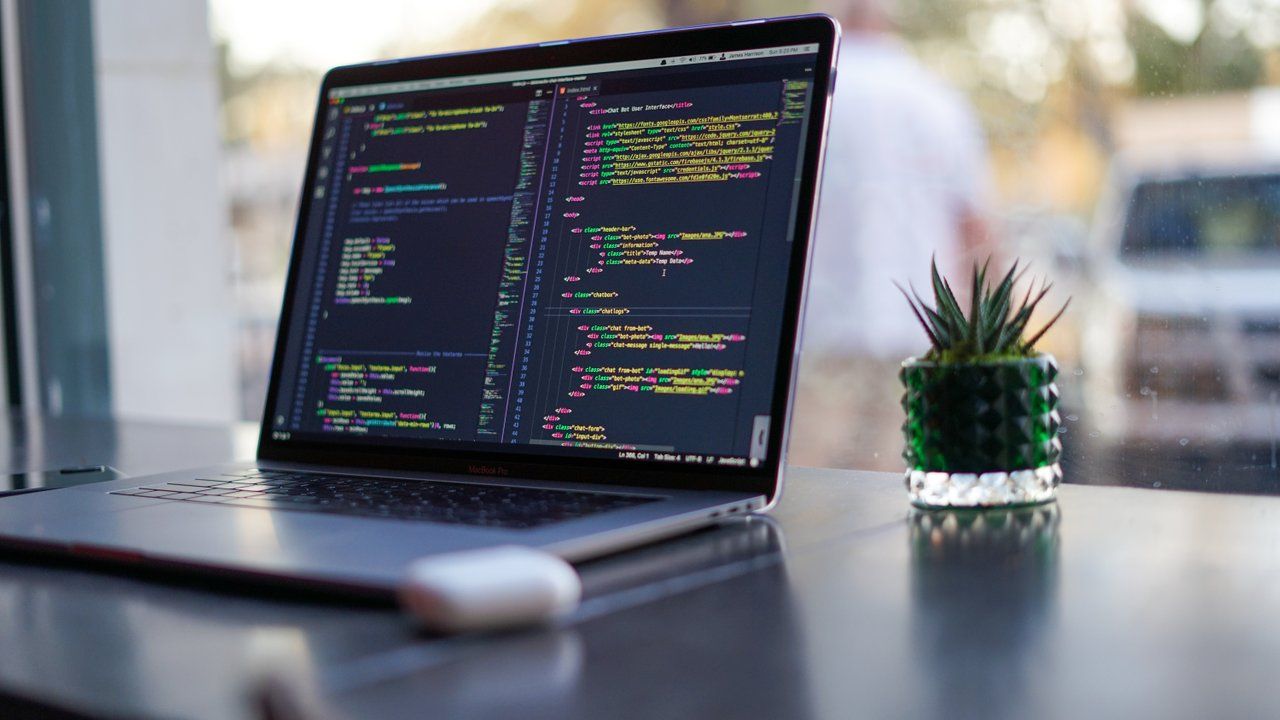
If you're planning on changing careers, there are several free and paid online courses. Codecademy was my choice for coding, while I took some free classes in LinkedIn Learning and Google Digital Garage for Digital Marketing. These free courses even provide a certificate which you can add on your job profile.
The best way to build your portfolio is through application, doing actual projects but that's a different topic on it's own.
Finally, you can use job boards that are exclusive for remote work when looking for a job or clients. Below are some useful sites:
Job board for remote jobs in the blockchain industry. The crypto and blockchain space offer highly paid jobs both for technical and non-technical roles
Job board for jobs in different industries.
5) Build multiple income streams
Start building multiple passive income streams.
There's a lot of uncertainty while on the road. There will be places with poor internet connection so it would be great if you still generate income without you having to work.
There are several passive income streams and I am not a financial advisor to let you know which one you should consider. You should do your research on this and not gamble.
Personally, my passive (or semi-passive) income sources are Google Adsense, affiliate income, traditional stocks and other investments.
For example, I have this travel blog which started as a hobby while I was still employed. It's not my main source of income but some of my blogs are still earning even after years since I wrote the blog. I am not a famous blogger so I don't really earn much from AdSense. But where I get a livable income is through affiliate marketing.
But first, you need a blog where you can place your affiliate links. Since I have other job/s and I want more time traveling, I subscribed to TravelFeed's blogging platform while my domain is from Porkbun. I used to have BlueHost and Wordpress when I started but it was a lot of technical headache. The time spent figuring out technicalities isn't worth it. Meanwhile, I get to simply write a post in TravelFeed like I would in Microsoft Word, it's so easy and saves a lot of time.
For affiliate income, I recommend Travelpayouts as it's an all-in-one platform. In one account, you can get affiliate links for Booking.com, Agoda, Viator, Expedia and many more popular travel companies. I used to have one account per company but did you know that each would have a minimum pay out amount, different requirements and so on. With Travelpayouts, you get paid at a good rate too even if you're just a beginner.
6) Downsize
As a digital nomad, your backpack is your house, or closet if that's a better analogy.
You will only bring what you will really need so what do you do with all the stuff that you have?
You can keep them but you won't be using them until you're home which can take months or even years.
I sold a lot of the clothes and gadgets that I don't need anymore and this even added to my travel fund!
I used the Carousell app in the Philippines and that was a very efficient way to sell my pre-loved things. I also donated some clothes to charity.
There were still stuff left that I could not give up such as important documents and things that I know I will still use in the future so I rented a small locker for this.
I subscribed to Loc&Stor's walk-in storage in Pasay, strategically located near the airport.
You can also ask your family to keep some of your things so you don't keep paying an apartment if you are renting one. And if you have a house, you can rent this out while your minimal things are stored somewhere (and that's rental income!).
UPDATE: Since I returned home from my repatriation in 2020, I gave away most of my remaining stuff so I didn't have to rent a storage locker anymore.
That saves me 1,000+ pesos per month!
I realized after a year that I never needed the things I left in the storage, so I would not likely need them in the future as well. I only kept really, really important things of sentimental value and important documents.
7) Get a Multiple Entry US Tourist Visa
Wait.. what?
Yes, a US tourist visa even if you are not going to the US.
Being a Filipino nomad isn't easy with our weak passport. But did you know that you can enter more countries if you have a valid US visa?
Most countries in Latin America and some in Eastern Europe would no longer require a visa if you have a valid US visa.
Try to get a multiple entry US tourist visa while you are still employed. You have higher chances of getting a US tourist visa when you have a 9 to 5 job than when you are unemployed.
Click here to read my tips on how to ace that US embassy interview.
A multi year Schengen visa also gives you visa free access to some countries like Balkan countries but note that you have to apply for a Schengen visa from your home or residence country.
8) Process Tax & Needed Gov't Papers
For Filipinos: If you are an employee that wants to become a freelancer or a business owner, you have to change your tax status and possibly your RDO. These took me a while to process. Everything is in paper and you have to go personally to the BIR office.
Once you have everything updated, you can file and pay your taxes online. BIR has an e-BIR form where you can do this. Unfortunately, this only work on Windows.
If you want convenience or you cannot access the e-BIR form, you can also avail of online tax filing platforms such as Taxumo or Juan Tax.
Other government papers that you may need are those that are usually asked in tourist visa applications so check which countries you might want to go soon. In most cases, you have to apply from your residence or home country so you don't need to process all papers right away and they want most recent papers. For instance, Japan tourist visa requires a birth certificate issued by the PSA within the past one year and you can only apply in your residence or home country.
9) Get Travel Protection, Get Insured
Once you're out of your regular job, you'll lose some benefits such as free HMO, if your employer provides one. And the worse thing that could happen to any traveler is getting into an accident and using all travel funds and life savings for the hospital bills.
I started out my digital nomad journey in the Philippines and I stayed in Batad. I was hiking and walking up the rice terraces a lot so I got a local travel insurance from Malayan. It was 50 pesos per day as I was there for a month, and it gets cheaper the more days you get insured.
As for my international travel medical insurance, I got mine from SafetyWing. They are the most affordable in the market. It used to be $36 per 28 days but they have increased to $40 as they now cover COVID19. That's $1.43 per day.
Your peace of mind while on the road is cheaper than getting your daily Starbucks coffee.
They are also the only travel medical insurance available to Filipinos which you can renew or apply for even if you're already abroad. Other insurances require you to be back home every 3 to 6 months to renew your insurance, that means you have to buy a plane ticket to return home just to renew.
That's just the most impractical and expensive requirement for a nomad!
In my experience, they are very reliable and I also wrote a more detailed review about them.
I almost filed a claim for my repatriation to the Philippines when I got stranded in India on their unexpected total lockdown. They cover political evacuation and would not want to spend thousands of dollars for special flights if this happens to you. Luckily, the Philippine government repatriated me via military ship so I didn't have to file a claim.
Other accidents can happen such as getting bitten by a dog, or getting a weird skin infection called blepharitis when that dirty water from Bangkok's river accidentally splashed on your eye during your boat commute.
Yeah, all these happened to me and my travel funds remain intact and protected because of insurance.
10) Plan the 1st destination, be spontaneous next!
You can actually just pack and go but you may want your first destination to be a good starting point. It's good to get a feel of what it's like to work and travel.
My first destination was in Banaue, a beautiful place in northern Philippines but internet connection was terrible.
I then decided that my next destination would be a low cost country with reliable internet connection. I went to Thailand first and met other digital nomads in Pai.
My next trips were spontaneous since then and that's the point of being nomadic. I think our deciding factor was based on our food cravings! We wanted Indian food, so off we went to India.
Some factors to consider are visa and cost of living. It would be better to start in low cost countries while you're establishing yourself in your new remote job or business.
Another important reason for planning on the first trip abroad is our Philippine Immigration. You can't tell them you're traveling the world for a year or more. Sadly, they'll be suspicious of either human trafficking or becoming a TNT (tago ng tago) abroad. I wrote some tips to avoid getting offloaded here.
You need a roundtrip ticket even if you'll not use the return ticket. This is a Philippine Immigration requirement even for foreigners. You can also get a temporary return ticket for about $10 from several travel agencies.
You can also check out destinations with co-working or co-living so you can get acquainted with digital nomads.
Before you go...
Keep in mind that you can always return home if you realize that the digital nomad life isn't for you.
I have been one for over 4 years and I don't regret it. I don't think I'll ever return to a 9 to 5 job after experiencing this new-found freedom.
PS. Invest in a good and sturdy laptop. I got a lightweight laptop from ASUS but the hinge broke a few times - a DN's nightmare. Most DN's recommend a MacBook. Update: I got a Macbook in 2021 after my ASUS broke. Best investment as I'm still using it in (2023) 2024!
